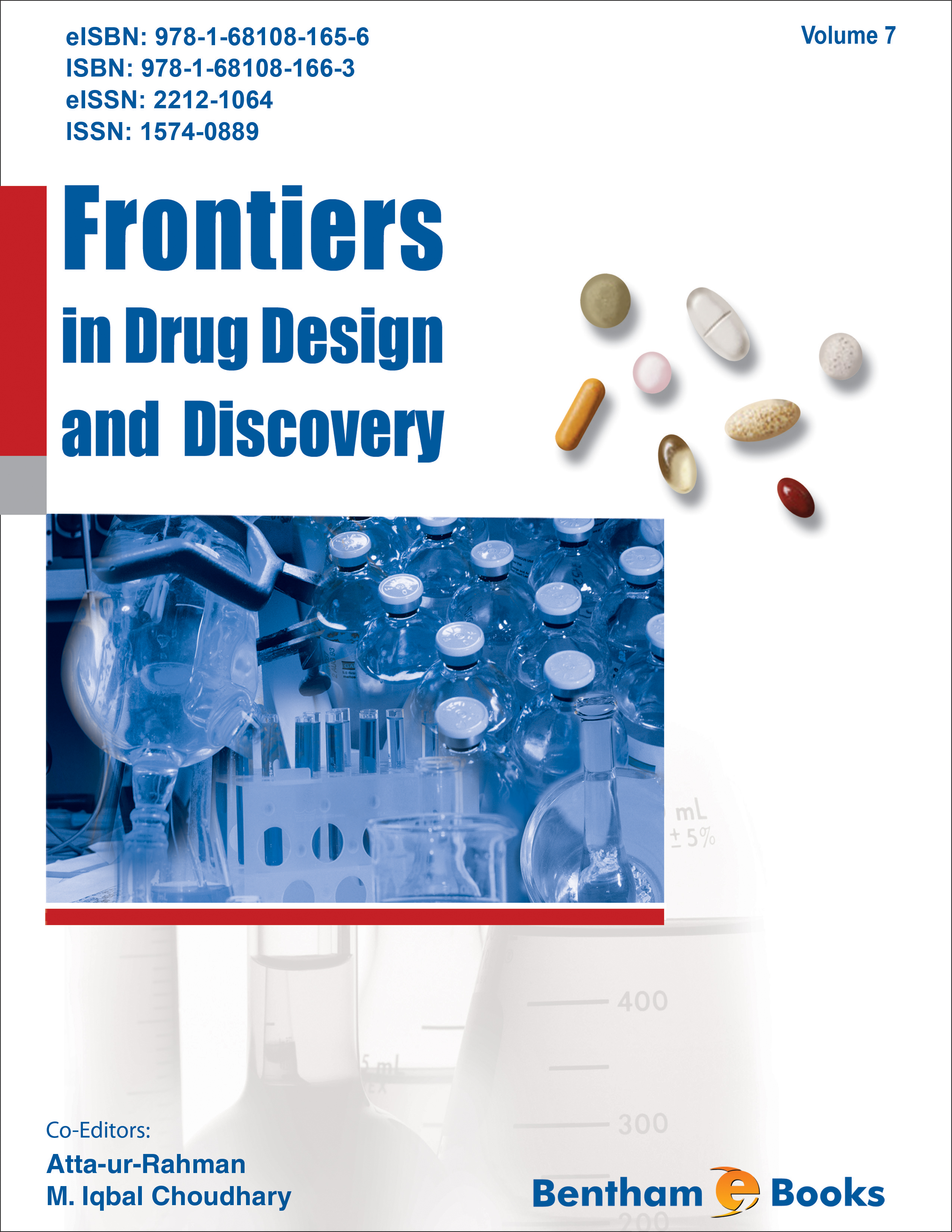Preface
Modern drug design, discovery, and development are inherently interdisciplinary in nature
where researchers of various disciplines work together, equipped with the most sophisticated
technologies and recent understanding of the diseases at the molecular level. Despite
overwhelming activities in this area in the past three decades, a large number of diseases have
either remained untreated or their currently available treatments are not sufficiently effective.
Emerging drug resistance, and drug associated adverse affects are further complicating this
situation. Among the 21, 000 registered drugs, only 1,357 are unique in their structures. This
clearly highlights the growing need of innovative and creative health care solutions which can
reduce the human suffering.
The 7th volume of Frontiers in Drug Design and Discovery comprises seven excellent
reviews, contributed by leading experts in these fields. Mahbuba Rahman has contributed a
review on metabolic pathways in cancer cells and their relationship with emerging resistance.
Metabolic pathways play an important role in promoting cancer cell survival and growth.
Metabolic reprogramming is a hallmark of cancer cell proliferation, supporting enhanced
nutrient uptake to supply energetic and biosynthetic pathways. Rahman has highlighted the
importance of understanding these pathways and their association with chemotherapeutic
resistance. Such in-depth understanding of metabolic reprogramming in cancer cells and its
various implications can be used for identifying new targets for anti-cancer drug discovery.
Cancer chemotherapy is known to have a number of adverse effects on patients, including
cardiotoxicity. Bras-Silva et al. have contributed a detailed review on a whole range of
cardiovascular problems associated with the long term use of anti-cancer drugs, including
heart failure, ventricular systolic dysfunction, hypertension, thromboembolic disease,
cardiomyopathy, arrhythmias, and myocardial ischemia. The need of cardiac monitoring, and
careful risk assessment is also discussed. The review ends with a summary of various new
approaches and therapies which can reduce the risk of cardiovascular events during cancer
chemotherapy.
Crispi et al. focus their review on innovative therapies and new approaches for cancer
treatment. The need for better drugs and improved drug delivery systems against cancers is
greatly felt. The review highlights the most recent advances in the field, particularly the use of
novel combination therapies and development of nanocarriers for improved drug
bioavailability and site specific drug release. These key developments have helped in
achieving greater efficacy and lower toxicity in cancer treatment. These approaches also have
the capacity to circumvent the emerging drug resistance in cancer chemotherapy.
Yoshino et al. have contributed a comprehensive review on various combination of anticancer
drugs clinically tried for the treatment of a rare type of uterine sarcomas. This rare cancer has
three histological variants, i.e. carcinosarcoma, leiomyosarcoma, and endometrial stromal
sarcoma. Because of the rarity of this cancer, the search for specific treatments and welldesigned
clinical trials on various combination therapies is not vigorously pursued. This
review provides a commentary of innovative combinations of anti-cancer agents that are now
being tested for the treatment of all three variants of uterine sarcomas.
Angiogenesis is a normal process for healing and reproduction. This involves the growth of
new capillary blood vessels. However, in pathological conditions, angiogenesis leads to
abnormal blood vessel growth. This then becomes the underlying process for many deadly
diseases, including cancers. Roslida Abd Hamid et al. have reviewed various strategies
targeting biochemical and cellular events involved in the tumor angiogenesis. Most of the
anti-cancer drugs are non-specific in nature, and thus associated with numerous side effects.
Moreover, substances which inhibit angiogenesis specifically act on new cells. The authors
have reviewed the various classes of natural substances, including marine natural products,
with anti-angiogenic activities. Methods for validating the anti-angiogenic inhibitory activities
of test substances have also been mentioned.
Biaoru Li has focused the next chapter on recent developments on the emerging field of
personalized medicine. The entire concept is presented in an easy to understand manner by
systematically describing personalized chemotherapy. This starts with the genomic analysis
from tumor tissue sampling and ends at the identification of the most sensitive substances
from the available drugs. Through this case study, the concept of personalized medicine i.e.
“the right treatment for the right person at the right time”, is skillfully described. With the
introduction of next generation sequencing, and system modeling related to drug discovery,
the concept of personalized medicine would be widely applied.
The last review in this volume is related to the application of nanotherapeutics in the
treatment of infectious diseases. Nanotherapy is the newest mode of treatment that can be
applied for the treatment for various diseases. Sheikh et al. describe the hypothesis and idea
of a nanotherapeutic system, and the various aspects related to it such as change of properties
of substances at the nano-levels, testing of the new drugs, and the safety assessment of the
new nano-substances. The key challenges in the treatment of infectious diseases include drug
resistance, less bioavilability, and non-specificity of potent antibiotics. This review highlights
the advances in drug delivery through nanocarriers which can solve most of these problems
associated with conventional antiobiotics therapeutics.
In the end, we are extremely grateful to all the contributors for the timely submission of their
reviews. The 7th volume of the eBook series is the results of the efficient coordination and excellent management of the entire team of Bentham Science Publishers. We would like the
recognize the efforts of Mr. Omer Shafi (Assistant Manager Publications), Shehzad Naqvi
(Senior Manager Publications) and team leader Mr. Mahmood Alam (Director Publications)
for putting together an excellent treatise of well written articles in a time efficient manner. We
are confident that this volume of eBook series will receive a wide appreciation from students,
young researchers, and established scientists.
Atta-ur-Rahman, FRS
Kings College
University of Cambridge
Cambridge
UK
&
M. Iqbal Choudhary
H.E.J. Research Institute of Chemistry
International Center for Chemical and Biological Sciences
University of Karachi
Karachi
Pakistan

